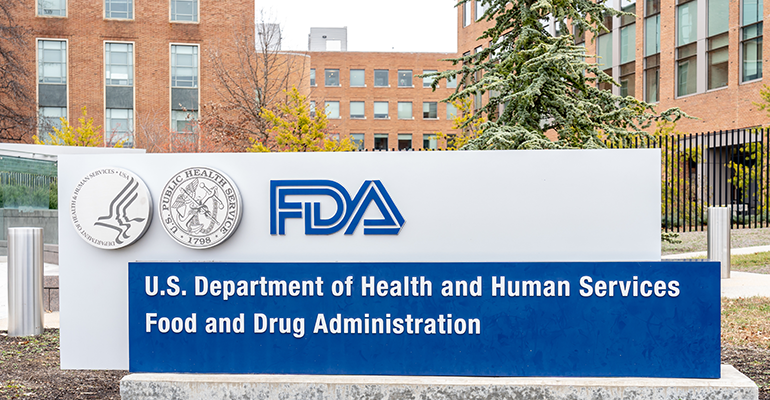News
US introduces Food Labeling Modernization Act
23 May 2023
Amid calls for better food integrity and safety, the US Congress has proposed a bill for clearer nutritional information and accurate labelling claims.
On 26 April 2023, the US introduced the Food Labeling Modernization Act (FLMA), proposing to mandate updated requirements for labelling on food packaging.

The newly-announced bill aims to provide clearer nutritional information and help minimise misleading marketing claims by updating food labels to reflect today’s requirements.
Access to accurate nutritional information is vital to enable consumers to reach safe and informed decisions. It is a crucial part of ensuring confidence in food products and building trust with customers. “This legislation will make it easier for consumers to determine the right food choices for their families at the grocery store,” said Frank Pallone, house energy and commerce committee ranking member, US Congress.
Meet changing habits
The latest law on labelling, FLMA, sets out updates on front-of-package food requirements, ingredient lists on packaged foods and the display of consumer-friendly labelling requirements. “It is past time that food labelling caught up. Improvements are desperately needed. Front-of-package labels are the future,” Rosa DeLauro, house appropriations committee ranking member, US Congress, said.
In addition, the labelling law will focus on reducing misleading claims by requiring front-of-package labels, clearly marked allergens, and clarified guidelines. If implemented, the US Congress anticipates the new legislation will create transparency and simplicity, evolving the US consumers’ shopping experience.
Today’s consumers can access assurance programmes and platforms to learn more about food products and their contents. “They have evolved to meet changing retail habits and allow consumers to make an informed choice on nutrition, ingredient, and allergen information, as well as the ethical credentials of their purchase,” Foram Mehta, global standards technical manager at BRCGS, told Ingredients Network.
“These programmes have been proven to support regulation and provide a clear framework for manufacturers to comply,” Mehta adds.
Clear health-focused communication
When announcing the law, Congress emphasised the impact obesity and diet-related disease is having as a cause of premature death among hundreds of thousands of people each year, alongside increased healthcare costs.
“This legislation will reform antiquated labelling rules that undercut efforts to buy healthy food,” said Richard Blumenthal, a senator in the US Congress. “Consumers deserve straightforward, easily accessible information about the ingredients and nutritional value of products they want to buy,” Blumenthal adds.
The FLMA will require new guidelines for using “healthy” in food packaging to increase opportunities to choose healthy products. The Act would also see the Secretary of Health and Human Services (HHS) develop a single, standard front-of-package nutrition labelling system. The bill would also focus on current laws to address marketing trends that confuse or mislead consumers when trying to compare food products.
Updating the law to 2023 requirements
Calls for the labelling law come as the US seeks to strengthen its approach to food security and improve the health of the country’s food supply and its population. In recent years, the US has expanded upon existing initiatives with federal agencies, the White House, and other laws.
Most of the country’s food labelling provisions are housed in the Food, Drug, and Cosmetic Act, which has not been updated since 1990 and, in some cases, not since 1938, the US Congress highlights.
 © AdobeStock/Monkey Business
© AdobeStock/Monkey Business
“Consumers have become increasingly concerned about the safety of their food and expect transparency, traceability, and accountability from food manufacturers,” says Mehta. The US has examined existing laws and developed new regulations to strengthen food safety. They have done this via labelling with the FLMA, the Food Allergy Safety, Treatment, Education, and Research (FASTER) Act which came into effect on 1st January 2023, and the Food Safety Modernization Act (FSMA).
“The FSMA was introduced and signed into law in 2011 in response to several high-profile foodborne illness outbreaks,” says Mehta. “These incidents highlighted the need to strengthen the food safety system in the US and shift the focus from reacting to foodborne illnesses to preventing them,” Mehta adds.
While the FSMA has been in place for over a decade, in November 2022, a new update was made. The traceability rule was one of the last to be published in response to Section 204 of FSMA. “The FSMA represents a shift towards a preventive approach to food safety,” says Mehta. “It grants the US FDA new authorities and mandates to enforce safety measures across the food supply chain,” Mehta adds.
In recent years, the Food and Drug Administration (FDA) has also updated requirements for the nutrition facts label on packaged foods. “Specific labelling requirements, such as nutrition labelling, are covered under different regulations, such as the Nutrition Labelling and Education Act (NLEA) administered by the FDA,” says Mehta.
Congress says implementing the FLMA would build on that initial progress of nutrition facts labelling by making easy-to-read information available for consumers to make informed decisions when buying food.
Related news

Oat Barista: Innovation for game-changing beverages
20 Nov 2025
Oat Barista is a clean label, sustainable, and innovative drink base specifically designed to create the perfect foam in one single ingredient.
Read more
How younger consumers are redefining ingredient choices and rejecting brand loyalty
18 Nov 2025
Gen Z and millennial consumers’ preferences for transparency, functionality, and purpose are “redefining the very nature of consumption itself”, says SPINS.
Read more
Hybrid formats and flexible positioning to disrupt category norms in 2026
17 Nov 2025
Trend forecasters expect food and drink to move more fluidly across occasions, functions, and formats as consumers seek versatility, novelty, and convenience.
Read more
Danone highlights digestive health as potential ‘tipping point’ for food industry
13 Nov 2025
Danone is betting on a food industry “tipping point” that will bloat the market for healthy products, particularly those related to gut health.
Read more
New UPF standard hoped to offer consumers ‘coherence and clarity’
10 Nov 2025
Ingredients companies are being urged to enter “a new era of partnership and innovation” following the launch of the industry’s first non-UPF verification scheme.
Read more
Faravelli at Fi Europe: Showcasing FARA® functional solutions for food and nutra
28 Oct 2025
At Fi Europe 2025 in Paris (stand 72M39), Faravelli showcases FARA® Customized Functional Solutions and a wide ingredient portfolio for food and nutra – delivering quality, innovation, and expertise.
Read more
Agrigum Redefined FIBER
27 Oct 2025
Agrigum has transformed gum acacia into a natural, science-backed fibre that supports gut health, sustainability, and innovation across global food and nutrition applications.
Read more
Expanding boundaries in food & beverage innovation
23 Oct 2025
IMCD and FrieslandCampina Professional expand partnership to deliver Kievit® across EMEA, enabling brands to enhance quality and accelerate time-to-market for tomorrow’s food & beverage creations.
Read more
Amazon Grocery launch aims to balance quality with affordability
22 Oct 2025
Global e-commerce giant Amazon has introduced a new private-label food brand, combining existing Amazon Fresh and Happy Belly products with new everyday items.
Read more
Powerade enters hydration space with launch of Power Water
21 Oct 2025
Coca-Cola’s Powerade brand has launched a zero-sugar, electrolyte-enhanced functional water, marking the brand's entry into the hydration space.
Read more